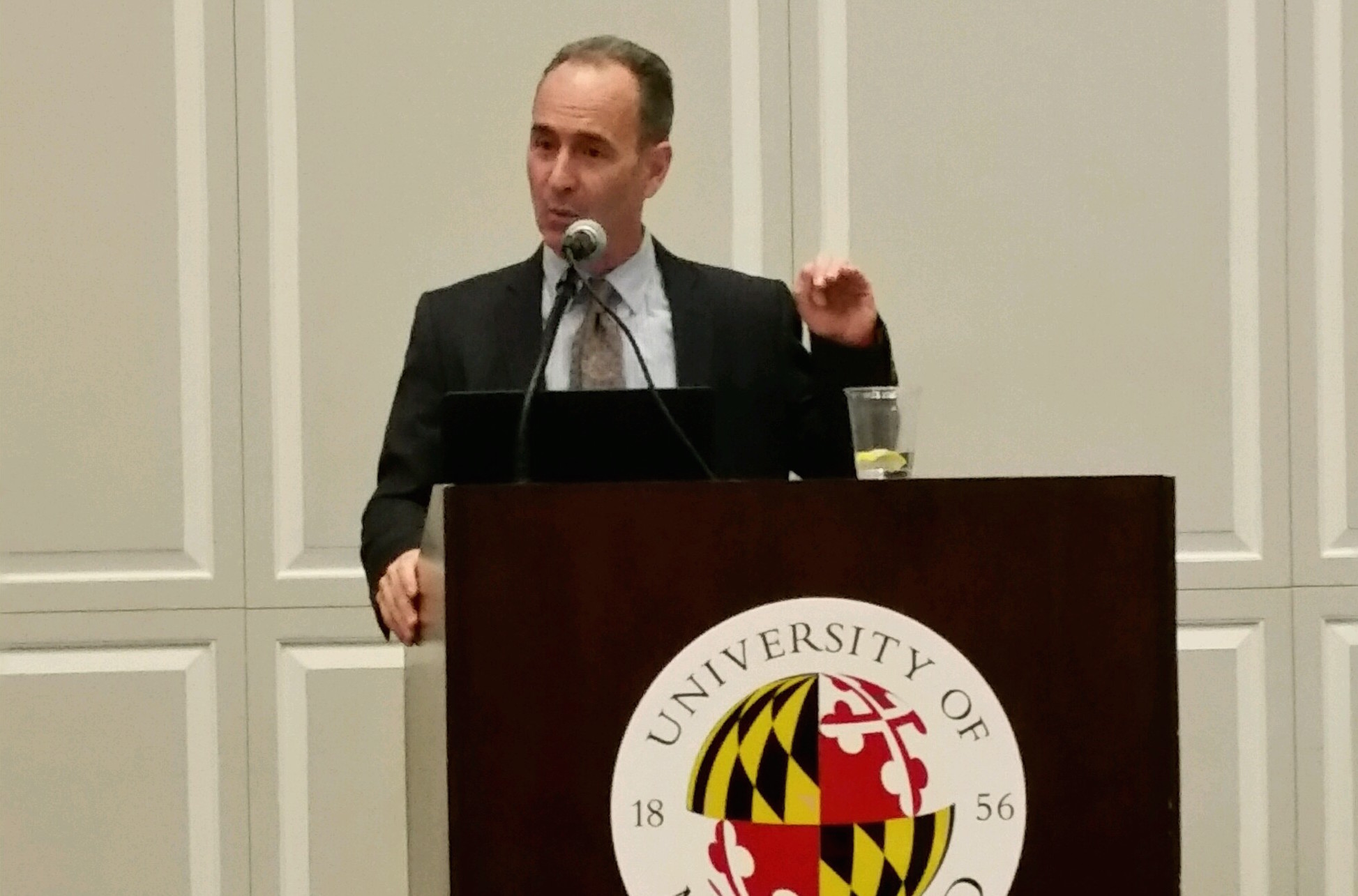By Zane Moses
For The Diamondback
National Public Radio global health and development reporter Jason Beaubien spoke to about 100 students at the Samuel Riggs IV Alumni Center on Wednesday, detailing his opinions on the state of the world and disease.
“It is a world now that is far more vulnerable to emerging diseases than at any time in history,” Beaubien said.
At the “Maryland Dialogues on Diversity and Community” event hosted by the public health school and the behavioral and social sciences college, Beaubien discussed how his career as an international correspondent developed his opinion of global health. He explained how global health is declining because of human actions in the form of transportation, climate change and human expansion.
Priya Parikh, a senior global public health major and founding president of Public Health without Borders, a co-sponsor of the event, introduced Beaubien. She shared some information about his career — including the 27 countries he reported on in Africa and the Peabody Award he and his team won for coverage on the Ebola virus — prior to his introduction.
Beaubien said human infrastructure allows viruses to spread quickly. He pointed out the Zika virus’ monumental spread throughout the world in a matter of months, citing that 20 percent of newborns in Puerto Rico were infected over the course of a year, according to Centers for Disease Control and Prevention.
“This is a disease that is moved by airplanes,” Beaubien said, “and it is moved by people who infect one place. They might not even know that they have it, and then they will go to another place.”
Beaubien mentioned that climate change and population growth also spread disease. He discussed his trip to Peru, where miners dug into untapped places and brought them into contact with foreign diseases and viruses.
“This increase in human activity will only increase,” he said. “The population is 7 billion people [and] the projection is that … the human population will expand to 10 billion by 2050.”
Beaubien finished his presentation by detailing his issues with the current state of global healthcare.
“It struck me as this disconnect between disease that can spread everywhere and then we have these the international licensing of drugs in a way that someone who has a disease that could benefit from it isn’t able to get it,” Beaubien said.
The event began with introductions from Gregory Ball, dean of the behavioral and social sciences college and Jane Clark, the dean of the public health school. Ball spoke about the merits of the lecture series and how people are increasingly willing to listen to experts who understand global health.
“We really need to have people with different interests and these different fields speaking to each other to help us maximize the health of our society,” Ball said.
Clark delivered a similar message about the necessity of these dialogues and the benefits of the series of lectures — and also joked about her admiration for NPR.
“We like to say that we, at the school of public health, are NPR all the time,” Clark said. “We use it as a verb.”
He predicted there would soon be a global health crisis large enough to force countries to join together to improve global health, and he said he hopes countries decide to share resources before any serious damage occurs.
Parikh said some people become interested in global health pandemic stories but then lose that interest quickly. She said she found the lecture encouraging and was excited by how invested one reporter is in global health issues.
“It was really interesting to hear all of his different stories and hear him talk about how journalism has a role to play in global health,” she said.



